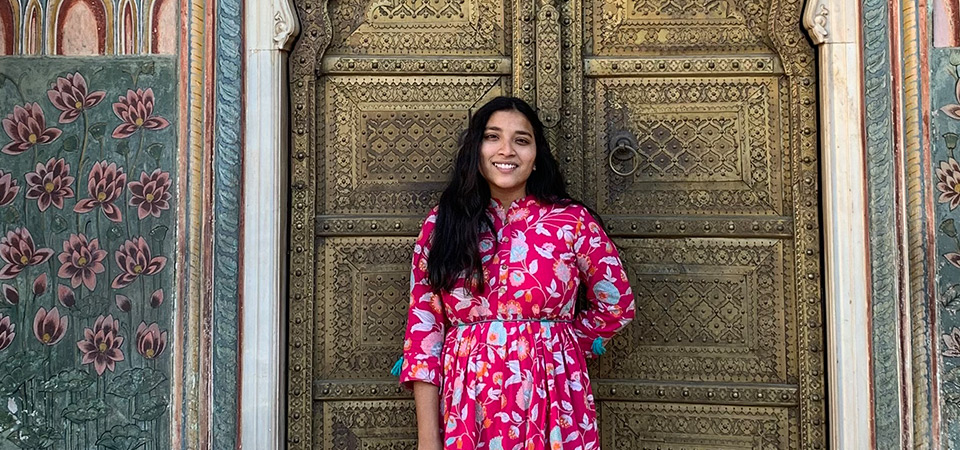I am Generation Equality: Krishna Sodha, Physicist and Social Worker
Billions of people across the world stand on the right side of history every day. They speak up, take a stand, mobilize, and take big and small actions to advance women’s rights. This is Generation Equality.Date:
Author: Zoya Khanday


Three ways to change the state of menstrual hygiene management in India:
- Be more inclusive of minorities, especially of trans women. Gender stereotypes hinder gender equality.
- Generate awareness, empower women and girls with knowledge about their rights.
- Don’t just be a bystander, get involved and be the voice for the voiceless.
I am generation equality because…
“I believe that every woman and girl has the right to safe menstruation, free of taboo and misinformation. I was shocked to discover the lack of knowledge that women had about menstruation and menstrual hygiene products, only a few kilometers away from Ahmedabad [a major city in India].
Period Poverty during the COVID-19 pandemic…
I am a physicist by training and passionate about social work. When the COVID-19 pandemic hit, I had just returned home from college and saw how the pandemic had increased existing vulnerabilities. It was then that I read a report on Period Poverty and it shocked me – a survey by Plan International with health workers across 30 countries pointed to restricted access to facilities to change, clean and dispose off period products during the pandemic. Over half the health professionals surveyed said they saw an increase in the price of menstrual hygiene products during the lockdown.
“
I believe that every woman and girl has the right to safe menstruation, free of taboo and misinformation.
"
I wanted to help; I just didn’t know how. I started reading and learning more; I visited women in the villages near my house, just a few kilometers away from the city. I realized they hesitated to open up about menstruation and the mask and social distancing requirements didn’t help [with engaging them in conversations]. Slowly, I built relationships with the women in the communities. I was told to visit during weekdays so they could speak to me freely when their husbands were not home. I took careful notes of their experiences and the problems they faced with managing their menstruation. I now understood their struggles better, but needed a team to help me do something.
Finding a community of my own…
The UNICEF-YuWaah-led volunteer initiative introduced me to the Young People Action Team (YPAT) in Gujarat – a group of 14 individuals working across different aspects of the Sustainable Development Goals for social change. With this team of people, I found the guidance I needed to fulfill my vision.
I started a ‘Period Bank’ where people can donate sanitary pads. Then we calculate the number of pads and make sure that they reach the women in need. We also host awareness workshops in schools and communities and continue to expand the number of contributors and connect them to the women beneficiaries. The YPAT team has been a great source of motivation, they’ve been catalysts in connecting like-minded young people to one another and given us the impetus to come up with innovative solutions."
Krishna Sodha, 20, is a Physics graduate, social worker and educator. Her organization ‘little4change’ works on climate action, menstrual health and hygiene, women’s empowerment and human rights, with a focus on trans rights and sustainable living. She is part of UNICEF and YuWaah’s youth volunteer initiative, Young People Action Team (YPAT) as a research lead and volunteer. During the pandemic, UN Women India supported the UNICEF-YuWaah led ‘Young Warriors’ initiative, a coalition that’s engaging 5 million “Young Warriors” to combat COVID-19 through modules on awareness building, communications and outreach.
Edited by Urjasi Rudra